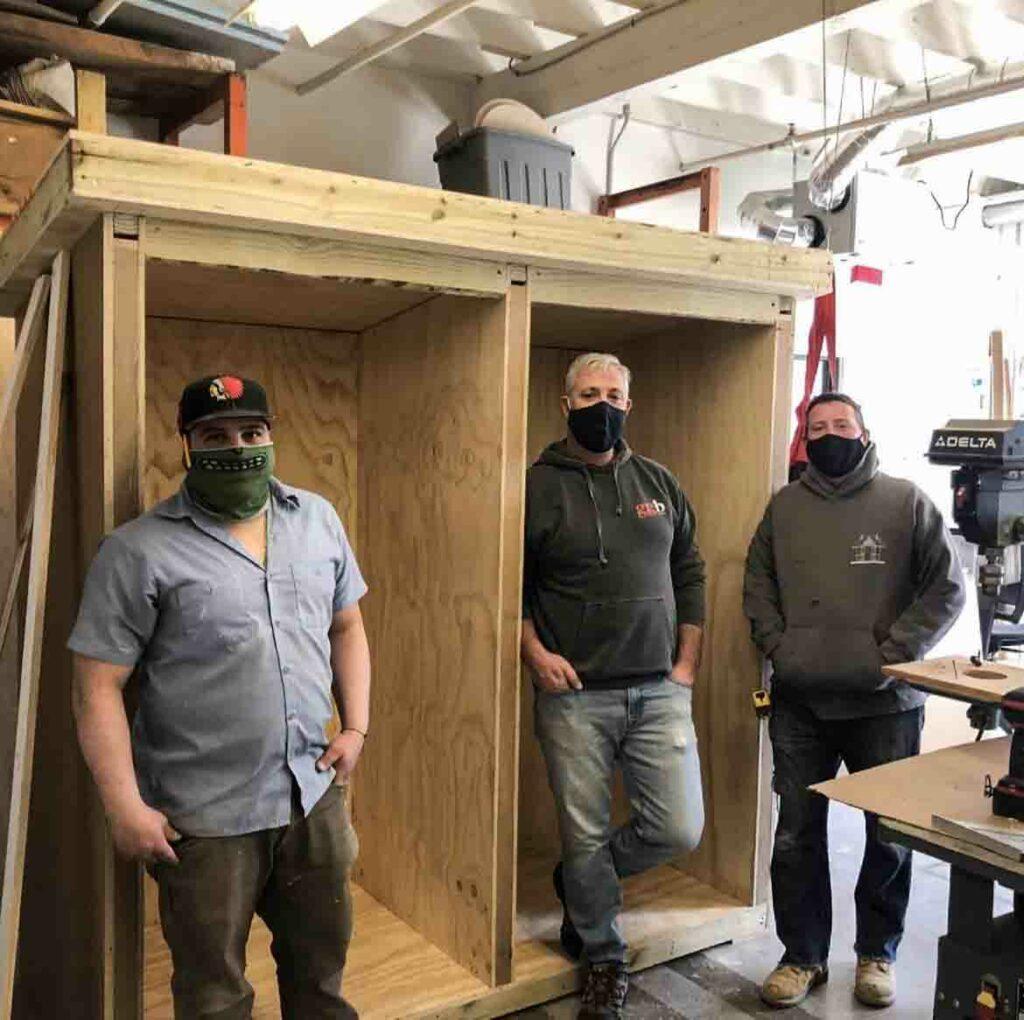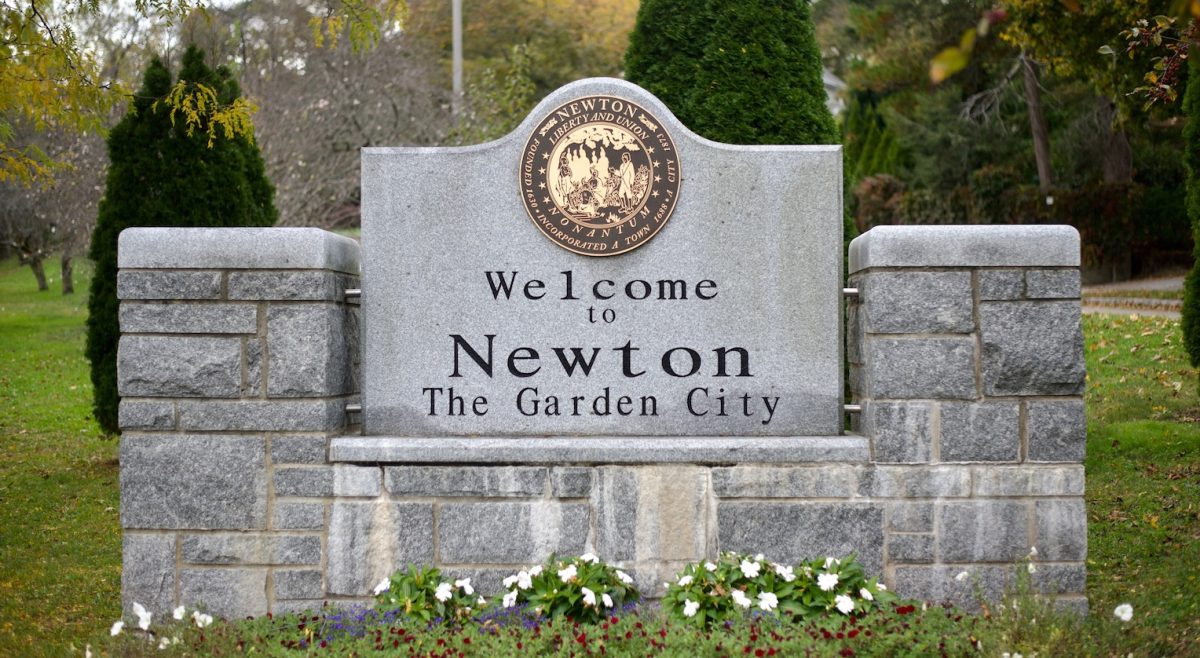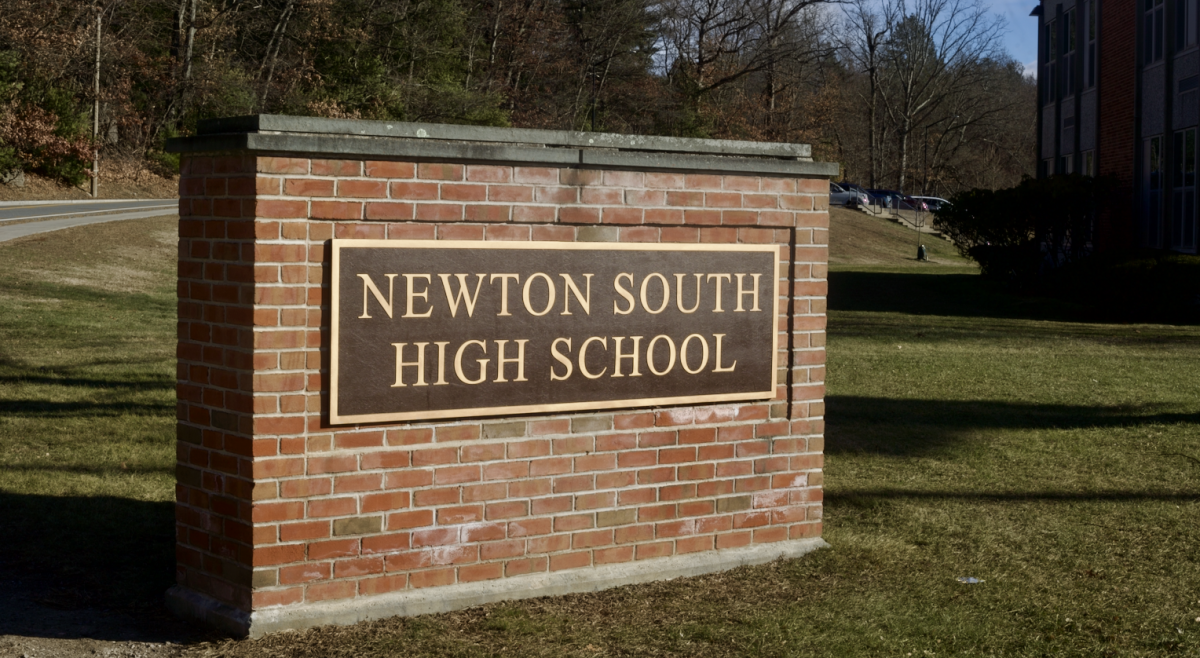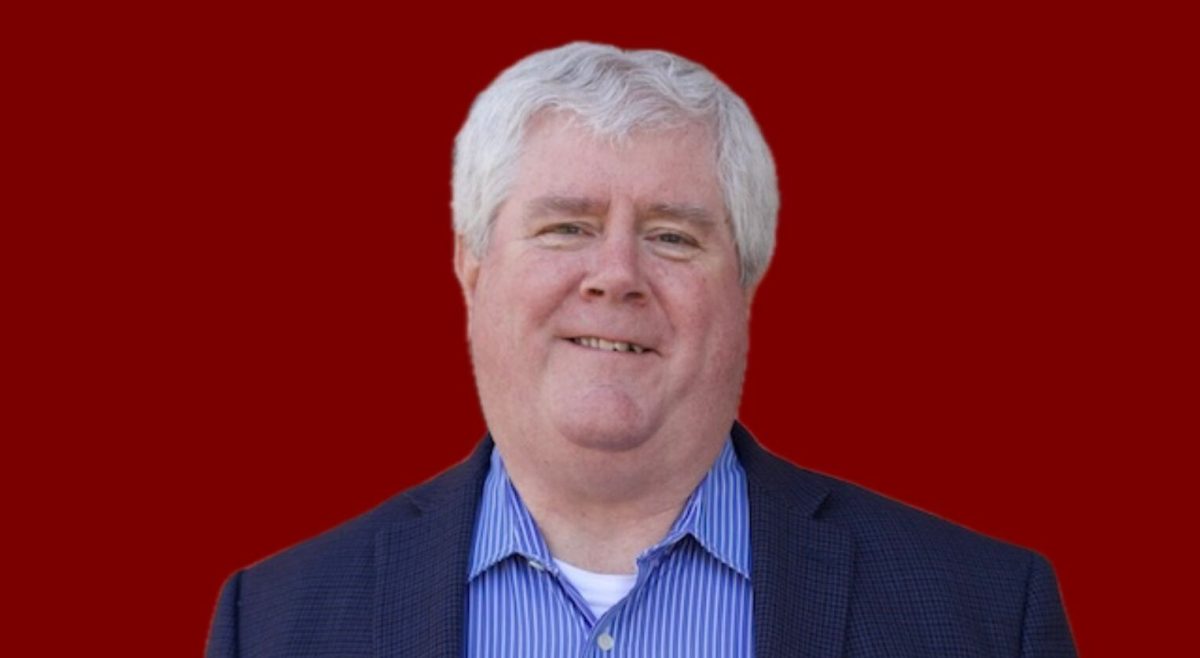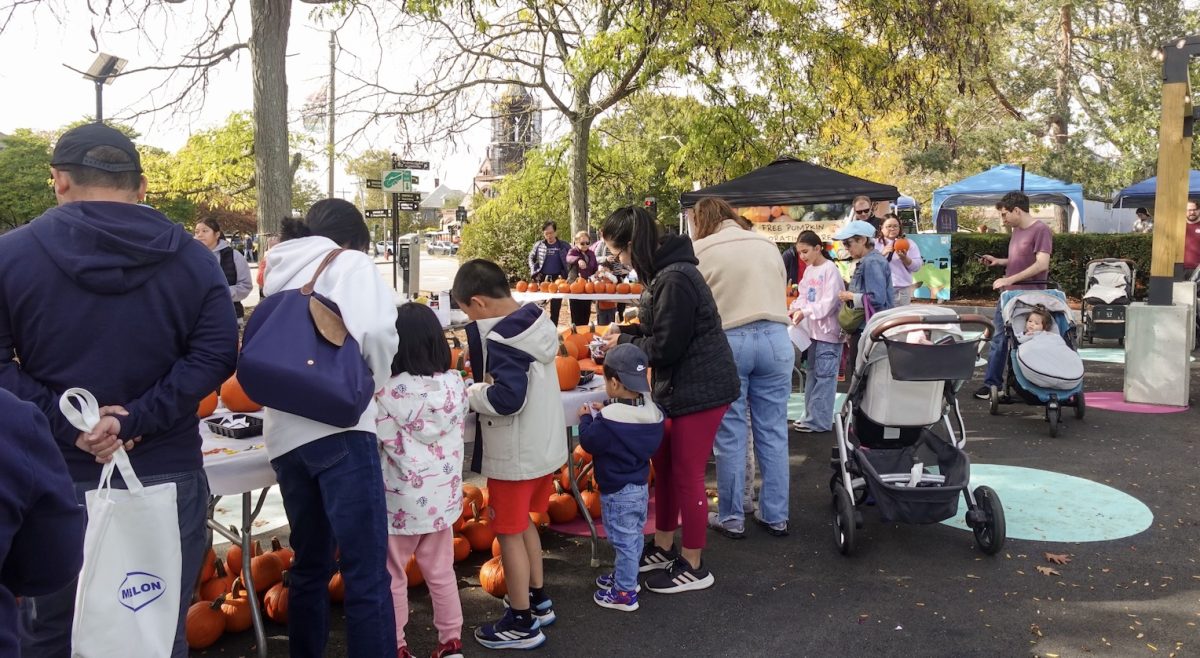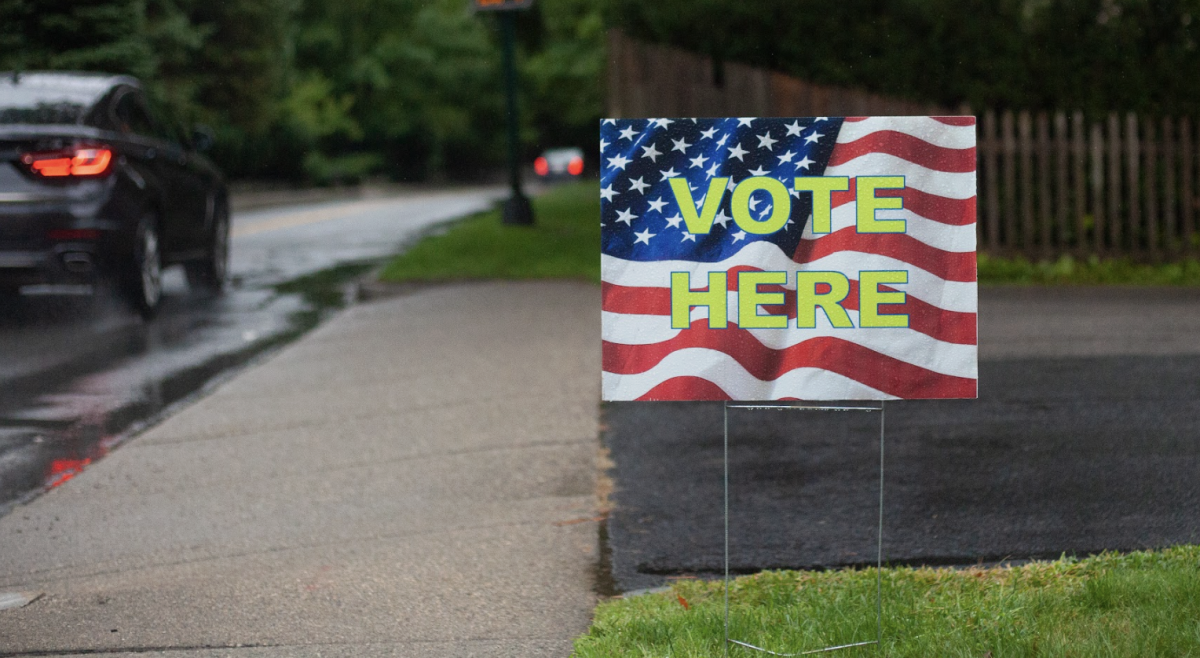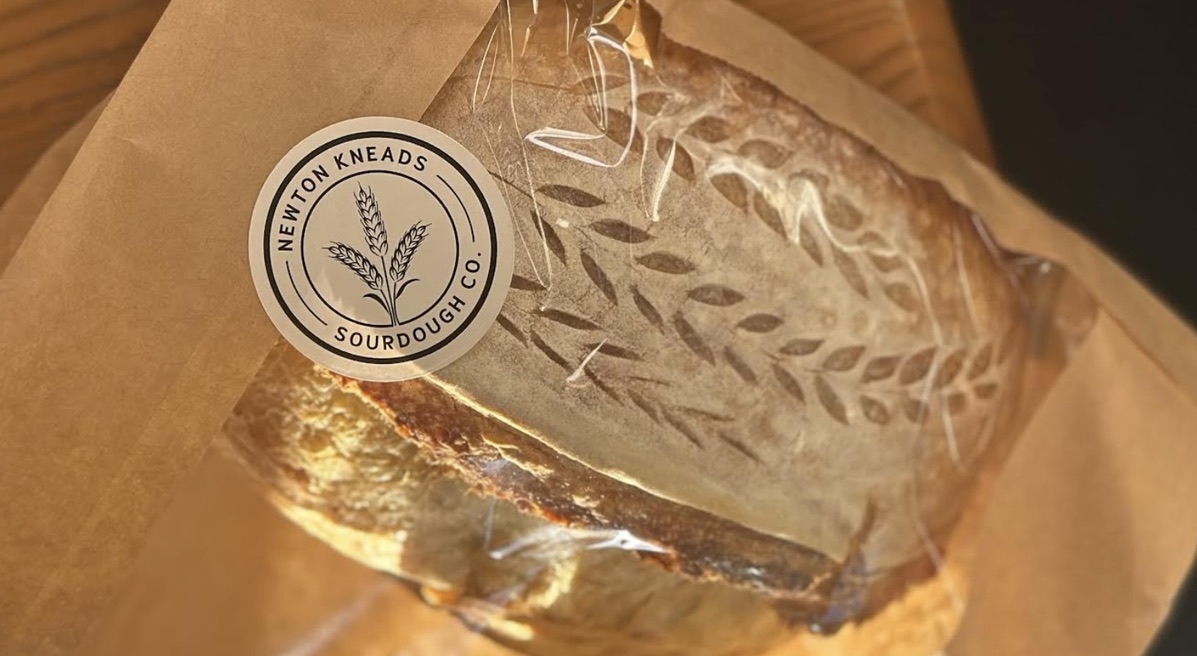“Our client numbers served has almost tripled since the pandemic, and where we used to serve 90 households, we are now serving close to 250 households on a distribution day,” Regina Wu, president of the Newton Food Pantry Board, said.
With a growing demand for food during the pandemic, the Newton community has continued to support the food pantry with generous donations, Wu said. In order to keep up with the increased demand, and because some older volunteers had to step away due to the risks that COVID-19 poses for their age group, the food pantry recruited more volunteers.
“We needed people who could lift 30 pound bags repetitively, [while] being outdoors in all different temperatures … so we basically rebuilt our volunteer base,” Wu said. “There were some of our existing volunteers that were able to stay on, but we brought on another 130 volunteers.”
Food pantry volunteers began distributing food to clients via curbside pickup outside the War Memorial Circle at Newton City Hall, giving out pre-packaged bags of food including pasta and rice to comply with COVID-19 restrictions. Volunteers also drive and drop off food directly to some clients, including elderly or disabled residents.
“One of the reasons that I reached out to the pantry to see if they needed volunteers was because I wanted to make a difference and help others in the community who I know will be negatively impacted because of COVID,” Sindy Wayne, volunteer coordinator for the freedge project, said.
One of the pandemic-era initiatives the pantry started is the freedge—a public neighborhood fridge stored in a shed in a common area, Wu said. The freedge provides a way for local residents to donate what they can directly to the freedge and for people to take perishable goods they need. Perishable and non-perishable items will be available to anyone at the freedge at all times and in all weather conditions, according to the pantry’s website.
Ernst Bertone Oehninger and Alexandra Hill originally came up with the idea of a freedge in 2012 to combat food insecurity. Since the freedge is placed in a public place, people can take food anonymously without fear of judgement.
“I see it as being like an additional supplemental food source to those in need in our community,” Megan Russell, a board member of Newton Food Pantry said. “There can be a stigma around food insecurity, and going to a food pantry. Going to the freedge allows maybe a little more anonymity for people if they need food.”
The pantry first announced the Newton Community Freedge Collaborative on Feb. 14 with the motto “take what you need, leave what you can.” This freedge is part of a large network of community fridges throughout the Boston area and the country. The fridges, known for their bright colors, strive to foster community and provide accessible food for all.
“The Newton Community Freedge Collaborative is excited to launch this initiative, offering an innovative way to help reduce food insecurity and increase engagement with the Newton community,” the pantry said in a statement.
The pantry plans to donate the refrigerator, which is set to open on March 14, and it will be located in parking lot space donated by the owner of Central Drapery & Dry Cleaning at 420 Watertown St., Mark Levine. Local Newton builders from Gilman, Guidelli & Bellow are currently donating their time and skills to tackle building a shed for the freedge.
Local businesses, including Johnny’s Luncheonette, Russo’s, Olivia’s Bistro, and Galit’s Treats Café & Bakery , will donate prepared sandwiches, meals, and soups to the freedge. Additionally, Wegman’s also has provided monetary donations. Residents are also encouraged to donate to the freedge.
The idea came to Newton after the initiative came to Russell’s attention when her friend forwarded her an article about the freedge movement in New York.
“And I took that article at that time, and I was like ‘that’s super cool, that’s a great idea. She forwarded it to me, knowing that I was heavily involved with the Newton Food Pantry, and wondering if this was an idea we could implement,” Russell said. “So I brought that article and reached out to Regina and said ‘hey you know why don’t we make this?’”
Russell brought up the idea for the Newton freedge to the food pantry board in April, but the idea was tabled until August. Wu said that the food pantry was in crisis mode at the time and couldn’t take on a new project.
“One of our priorities was to expand our client reach, we know from looking at the data from grab and go lunches and breakfasts, and kids and families who take advantage of the school lunch program that we’re not reaching every family that uses those services,” Wu said. “So there’s a gap.”
Twelve community partners, including the Rotary Club of Newton, West Suburban YMCA, the Newton Neighbors Helping Neighbors Facebook group, and local temples and churches are involved with the freedge project. Each organization helps to provide teams of volunteers, according to Wayne.
“We’ve had many local community groups say that they want to volunteer with us or donate money, and it’s really been overwhelmingly positive so we decided ‘let’s get some different groups involved,’” Wu said.
The pantry is considering the first two weeks that the freedge is open a pilot program, when different organizations will organize separate groups of volunteers in order to help stock and clean the freedge.
“We’ve recruited team captains, a whole variety of different organizations,” Wayne said. “Those organizations will really work closely with me to review the processes and the procedures that we put in place and refine how things are working.”
In order to keep the freedge clean and organized, the pantry is using a virtual system to schedule donation pickups.
“We have an elaborate schedule of donation pickups, and we have a QR code with a drop down for what the fridge monitor has to do when they get there in terms of cleaning. We have lists of what we’re taking and what we’re not taking,” Wu said.
Acceptable donations to the freedge include fresh fruits and vegetables, dairy products, and dry goods like flour, pasta, and rice. Other supplies, like diapers and hygiene products, can also be donated at the freedge. Donations that are not accepted include meat, seafood, opened goods, or personal leftovers.
Wu said that the community has been supportive of the food pantry during the pandemic as well as the new freedge initiative. Information on the freedge can be found on Instagram and Facebook.
“Every time a new initiative comes out, the more we can kind of tell people ‘Hey we’re here doing this work,’ people want to give, it’s wonderful,” Wu said.
Featured Image Courtesy of Regina Wu

